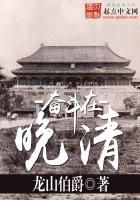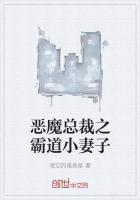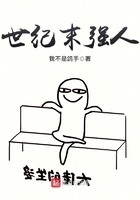8.More accurate maps began to appear in the 14 th century, with the spread of trade and increasing reliance on the compass. 14 世纪, 随着贸易的扩大和指南针的广泛应用, 出现了更精确的地图。
1 )with 是个介词, 在这里的意思是“随着..”。with 介词短语结构在句中作状语。
With the development of industry, many rivers have been seriously polluted. 随着工业的发展, 许多河流遭到了严重的污染。
With the wide use of computers it is more convenient for people to do things. 随着计算机的广泛运用, 越来越方便人们做事了。
2 )spread 在这里是名词, 意思是“ 散布;扩大”。
the spread of disease / (scientific knowledge)疾病的蔓延(科学知识的传播)
3 )reliance 在这里的意思是“ 信任, 信赖”。
Do you place much relia nce on your doctor?你很信任你的医生吗?
I place complete relia nce on his judgement. 我完全信任他的判断。
rely 动词, rely on / upon“ 信赖, 依赖”
He can always be relied upon for help. 他的帮助是永远可依赖的。
reliable 形容词,“ 可靠的;可信赖的”;
reliant 形容词,“ 信任的;有信心的”。
9.Once again, north assumed its rightful place at the top of maps. 北方再一次恢复了它在地图上方的正当位置。
1 )动词assume 在这里的意思是“承当;担任”。
The young manager will a ssume the direction of the important business.
这位年轻的经理将负责主办这项重要的业务。
The new president a ssumed office last week. 新任总统上周已就职。
assumption 是assume 的名词形式。
2 )rightful 在这里的意思是“ 合法的, 正当的”。
He is the rightful owner of the villa.
他是这座别墅的合法所有人。
Te xt B
You Have a Choice
由你选择
Study of the Text
1.Two trains are traveling side by side and at the same speed along parallel tracks. 两列火车以同样的速度沿着平行轨道并驾齐驱。
1 )travel 在这里是个动词, 意思是“ 行进;移动”。
Light tra vels faster than sound. 光比声音(行进)的速度快。
2 )辨异: journey, trip, n. travel v. & n.
这三者都有“旅行“ 的意思, 但侧重点不同。
journey 旅行。普通用词, 通常指距离较长的陆路旅行。
He went on a journey to Tibet. 他作了一次到西藏去的长途旅行。
It is a long train journey across Europe.
这是一次乘火车穿越整个欧洲的长途旅行。
trip 旅行。通常指短程的或出发后仍回到原处的旅行, 常常是令人愉快的或有目的的旅行、旅程。
She will make a business trip to Japan next week.
下周因生意她要去(一趟)日本。
They went to Qing Dao to have their honeymoon tr ip.
他们去青岛度蜜月。
travel 旅行, 可用成名词, 也可用成动词。通常指长途的旅行。
He came home after years of foreign travel.
在国外旅行了几年后他回到了家。
If I had a lot of money, I’d tra vel all over the world.
如果我有许多钱, 我要游遍全世界。
3 )side by side 并列地;并肩地The two bottles stood side by side on the table. 两个瓶子并排在桌子上。
类似的还可以说shoulder by shoulder , 肩并肩地。
4 )at the same speed 以同样的速度
类似的还有这样一些表示at the great / high speed of 400 k. m.
p. h 以每小时四百千米的高速;run / develop at a rapid rate 以很快的速度跑/ 发展。
2.You are wrong because all that we know is that the relative speed between the two trains changed from 0 mph to 10 mph. 错就错在我们所知道的只不过是两列火车的相对速度, 从一小时0 英里到了一小时10 英里。
1 )that we know 是定语从句, 修饰先行词all. 当先行词由不定代词充当指物时, 引导定语从句的关系词须用that。
All tha t glitters is not gold. 闪光的并不都是金子。
Is there anything tha t you need?有没有你需要的东西?(that 用作宾语, 可省去)
2 )relative 在这里是形容词, 意思是“相对的”。
relative to 与..有关的;关于..的These are the facts rela tive to the problem.
这些是与这个问题相关的事实。
relative 作为名词, 意思是“ 亲戚;亲属”。
You are my close rela tives. 你们是我的近亲。
3.There are thus two possible explanations to account for the change in speed. 所以有两种可能来解释速度的变化。
1 )thus 是个副词, 在这里的意思是“ 因此, 所以”。表示通过某种方式、方法引出的一种结果。
The new machines will work twice as fast, thus greatly reducing costs.
新机器的运转比原来快一倍, 因此降低了成本。
2 )account for 解释He could not a ccount for his foolish mistake.
他无法解释他为什么犯那个愚蠢的错误。
How do you a ccount for missing the fund?
你如何解释这笔资金的去处?
3 )in 在这里的意思是“ 有关;关于”, 是介词。
They’re equal in distance. 在距离上他们是相等的。
She is weak in judgement. 她判断力差。
4.Now let’s suppose that both trains are at the railroad station loading and unloading passengers and baggage. 现在假设两列火车都在车站让乘客上下车并装卸货物。
1 )loading and unloading passengers and baggage 是现在分词短语, 作伴随状语。
load 在这里是个动词, 意思是“装货;上乘客”, unload 是其反义词。
2 )suppose 在这里是连词, 意思是“ 假如, 如果”。
Suppose it rains, what shall we do?
如果下雨, 我们又该做什么呢?
It’s a good idea, but suppose your mother were to find out?
这是一个好主意, 但假如你妈妈发现了呢?
3 )baggage 在这里的意思是“行李”, 是不可数名词, 美国英语中常用之, 英国英语常用luggage, 二者都是不可数名词, 指旅行携带的行李。
I’ve put your baggage/ luggage on the train.
我已把你的行李放在火车上了。
You have four pieces of baggage / luggage altogether.You must be careful. 你一共有四件行李, 一定要小心。
5.Only after the other train pulled out of the station could we see that it, and not our train, was moving. 只有当另一列火车驶出车站时, 我们才明白是另一列而不是我们的火车在移动。
1 )这个并列复合句的前一分句是倒装句。
副词only 放于句首, 修饰状语, 句子要用倒装结构。
Only in this way can we learn English well.
只有这样才能学好英语。
但副词only 后接非状语时则不可倒装。
Only he is right. 只有他是正确的。
2 )pull out of (指车、船)开出(什么地方)
The bus pulled out of the garage. 车开出了车库。















